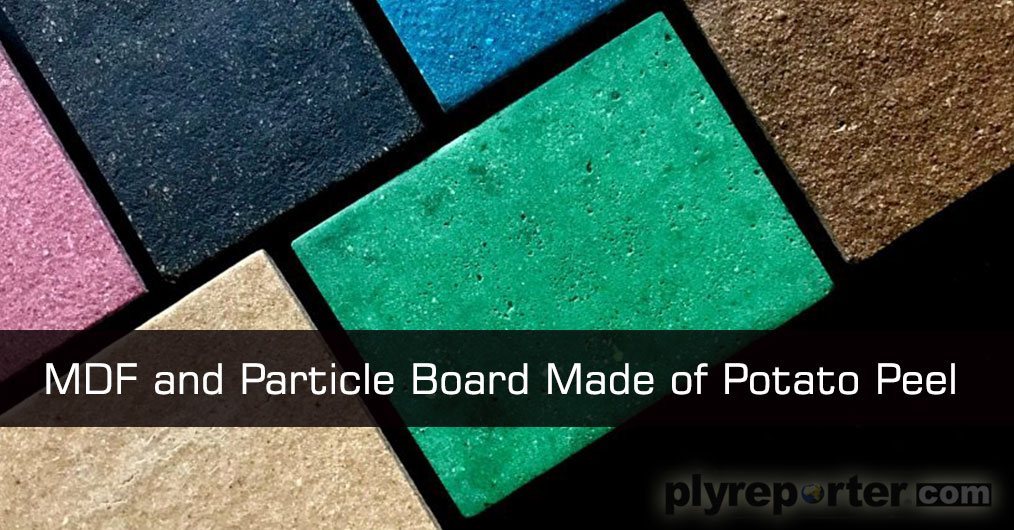
MDF and Particle Board Made of Potato Peel
Chip(s) Board; have invented an innovative product from food waste which can reduce its environmental impact. The developed material from potato peels can be used as panel like MDF and particle boards. It was come to light during a study when the co - founders of the company Mr Rowan Minkley and Mr Robert Nicoll were doing some freelance work on environmental impacts of readily disposable materials in London.
Inspired to find a new solution they sought to develop a new material that if treated in the same disposable manner would not have the large environmental impact currently generated by material disposal. The invention led to Minkley being selected as the United Kingdom's most promising young engineering entrepreneur by the Royal Academy of Engineering Enterprise Hub, which aims to encourage more young people to start their own engineering businesses.
For the purpose they wanted to focus on problem of food waste, which sees a third of all food produced ending up being thrown away. After collecting the peelings from manufacturers, they put the raw potato peel through various refinement processes to create a binding agent that can be applied to their fibres, which include potato skins, bamboo, recycled wood or beer hops.
They then use this to form the material by heat pressing the composite into a robust sheet of board, in a process similar to MDF production that can be processed into an array of products, such as furniture and building materials. The result is a sustainable wood substitute made from the waste potato peelings created from industrial food processing.
The chip particleboard produced with this method is a tine grain rigid board with a quality surface finish which can be used for interior design purposes. Chip strand board is a smooth fibre board with a smooth surface finish and tensile strength. Available in a range of natural pigments, it removes the need for further painting or sealing, reducing labour costs and environmental impacts.
Chip(s) Board are leading players of developing this kind of product. The materials developed by them are durable, recyclable and biodegradable contains no toxic chemicals and have been designed specially to create stronger circular economy for materials. Some of the finished products include: a milk stool, lamp shade and wall mounting, along with furniture and clothing.